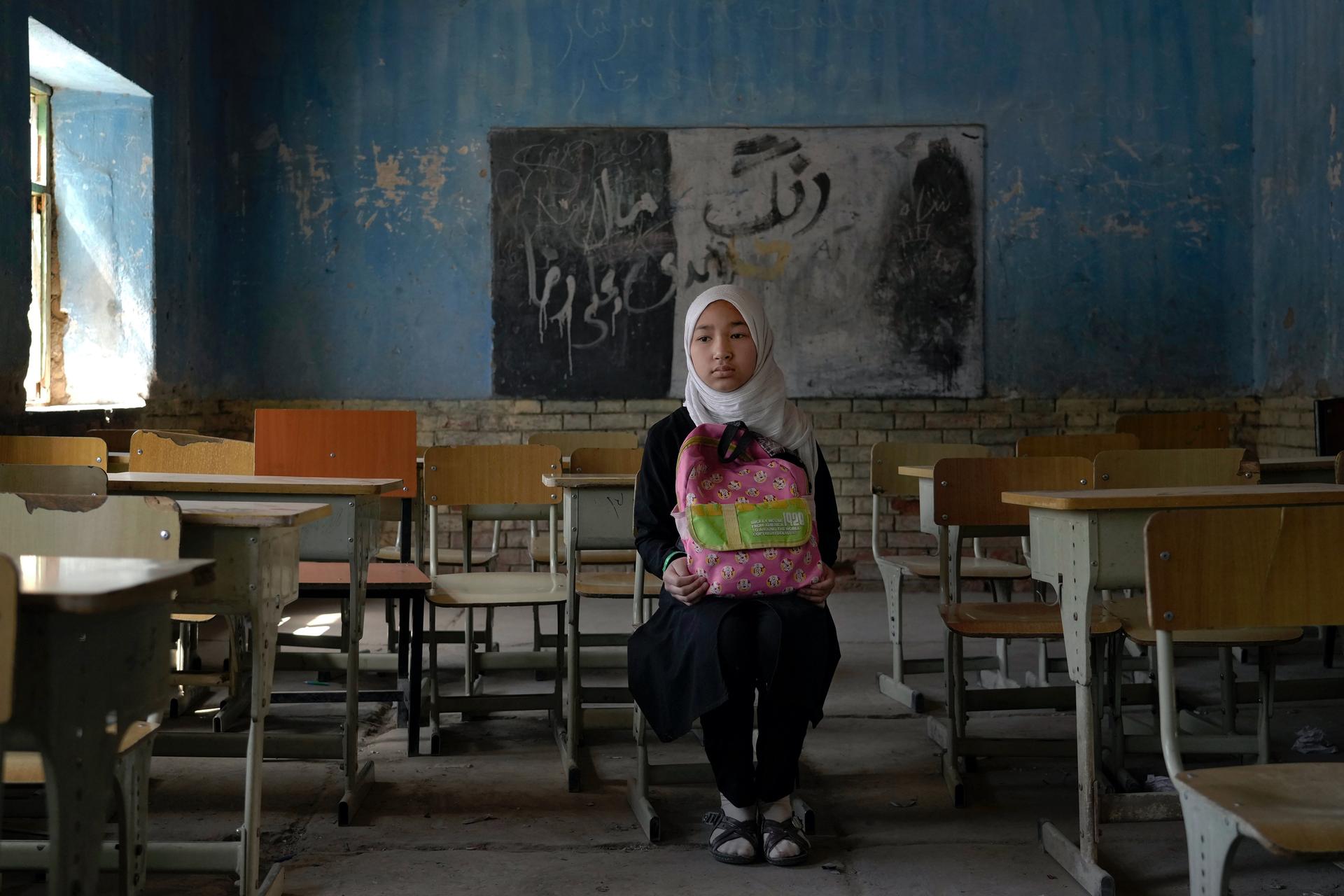‘We are erased’: The fight to reopen girls secondary schools in Afghanistan continues
For the past year, Matiullah Wesa has been zigzagging across Afghanistan, trying to give teenage girls an opportunity to learn.
Wesa is the founder and president of a nongovernmental organization called Pen Path. He started it in 2009 with the goal of promoting education in remote areas of Afghanistan.
But since the Taliban took over, his focus has turned even more on girls’ education.
“I set up classes online and offline because I didn’t want girls in my country to lose hope,” he said.
Wesa works with a team of teachers who conduct lessons in homes, in basements and in secret.
Since August 2021, when the Taliban came to power, they have ordered most secondary schools in Afghanistan closed. A few remain open in the northern parts of the country, but those are exceptions.
There is no clear consensus within the group about girls’ education and officials have given different reasons for not allowing teenage girls between grades six and 12 to attend classes.
Initially, it was about girls’ safety. Then, about their dress code. And this week, the acting Minister of Education Noorullah Munir claimed in an interview that Afghans don’t want to send their girls to school and that it goes against their culture.
Wesa said every day, he hears students ask: When can we go back? They listen to the radio and watch TV, he said, in the hopes of hearing some good news.
“It’s been more than one year they haven’t been in school and many are suffering psychologically,” he said.
Earlier this week, after negotiations between local elders, educators and the Taliban, schools in the city of Gardez in eastern Afghanistan reopened.
Teenage girls in their uniforms of white headscarves and long dark shirts headed to class. But the euphoria didn’t last long. The Taliban ordered the schools to close again.
One student told local reporters that she just doesn’t understand why the Taliban are treating teenage girls like that. Another, sobbed as she spoke with reporters.
Shortly after the school closure in Paktia, students protested in the streets.
One student, Somayeh, read a poem she had written about the ban.
“If you imprison us in our homes for a thousand years, we will fight back for a thousand and one years. For our right, for science and for humanity,” it read.
Wesa, the education advocate, said he is leading a campaign to reopen schools.
He added that the education minister’s comments about girls’ education not being part of Afghan culture didn’t go over well with many. On his recent travels to different cities in Afghanistan, he has been hearing the opposite from Afghan families.
In conservative Kandahar, he said, the spiritual birthplace of the Taliban, fathers and brothers told him they have no objection to girls’ education.
This week, the United Nations Special Rapporteur on Afghanistan, Richard Bennett, spoke about the rollback of women’s rights in Afghanistan.
“There’s no country in the world where women and girls have so rapidly been deprived of their fundamental human rights purely because of gender,” Bennett said.
United Nations’ Assistant Secretary-General for Human Rights Ilze Brands Kehris said that approximately 850,000 girls had so far dropped out of school, placing them at risk of child marriage and sexual economic exploitation.
“Policymakers globally need to consider how to address this ban on education as the world tries to deal with the Taliban in power in Afghanistan,” said Rangina Hamidi, Afghanistan’s former minister of education.
Hamidi wasn’t able to continue her work in Afghanistan after the Taliban came to power. She was left conflicted about whether she should leave the country.
“I am a mother of a girl who is in seventh grade today and I had to choose my own daughter’s future over the millions of daughters that I have left behind in Afghanistan and it’s a weight that I carry very painfully in my heart,” she said.
Hamidi, who is now teaching at the Thunderbird School of Global Management at Arizona State University, is hopeful that she can return someday to her country.
But that hope seems more and more distant as each day passes, and as the world turns its attention away from Afghanistan.
Longtime women’s rights activist Mahboubeh Seraj expressed her frustration this week at a UN conference on human rights.
“We are erased,” she said. “Do you know what that feeling is? To be erased?”
Our coverage reaches millions each week, but only a small fraction of listeners contribute to sustain our program. We still need 224 more people to donate $100 or $10/monthly to unlock our $67,000 match. Will you help us get there today?
